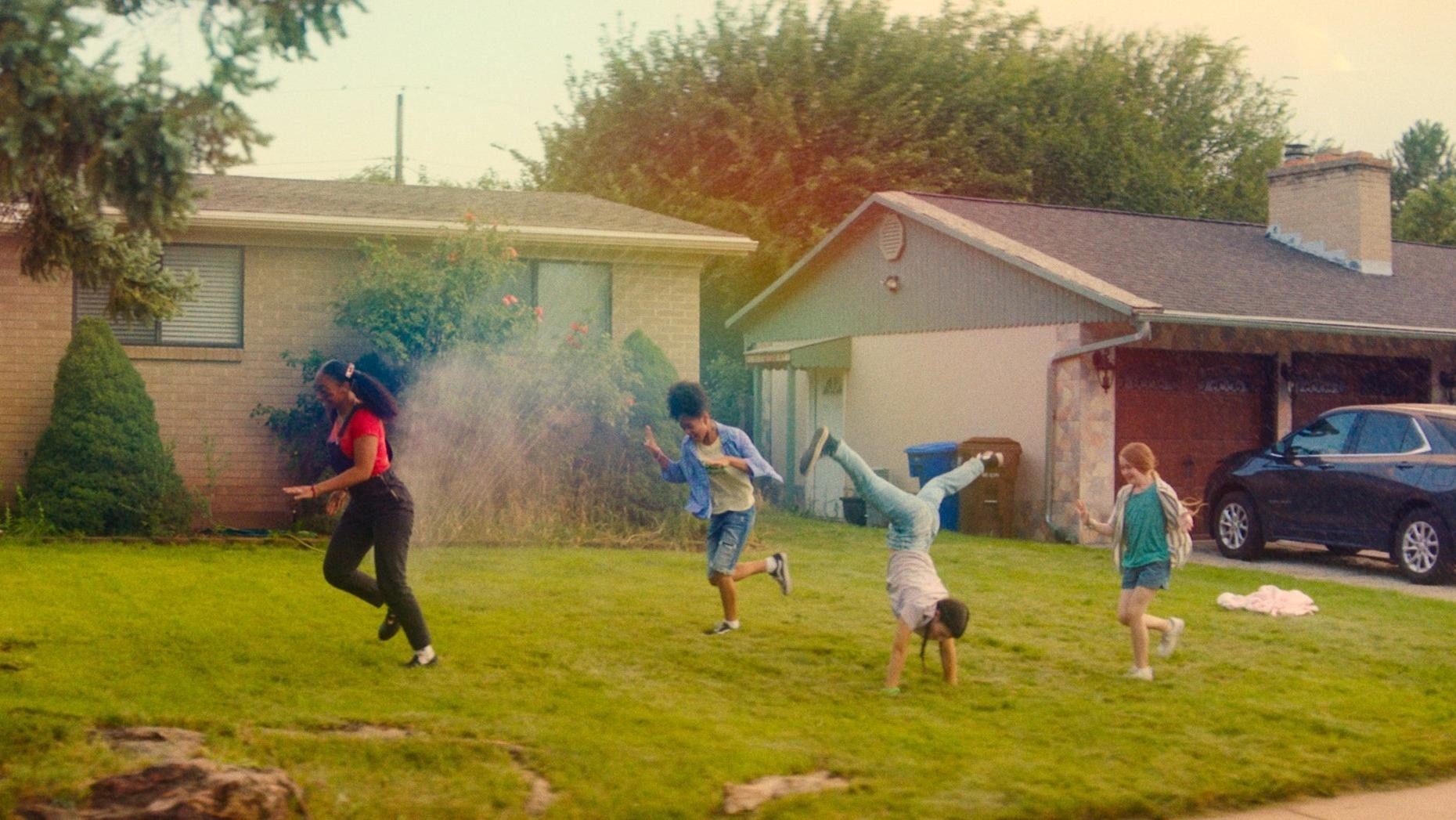Summering offers an authentic but unfocused coming-of-age story
Co-writer and director James Ponsoldt taps into the sensation of summer vacation's last days but fails to offer deeper insights for its tween female characters
Film Reviews Benjamin Percy
Childhood is such an ephemeral, specific time in our lives, where we grow and learn and discover ourselves and our place in the world. It’s no wonder that “coming of age” is one of the most popular narrative conventions, because growing up is inherently fraught with changes and developments that spur us on a constant state of evolution. Summering, by writer-director James Ponsoldt and co-writer Benjamin Percy, attempts to capture the intangible passage from young girlhood into preteen adolescence—and in terms of mood, their efforts are mostly successful. However, once the credits roll and all incidents are resolved, it’s difficult to pinpoint what exactly Ponsoldt and Percy were attempting to communicate through this exercise, since the fraying threads of their narrative feel less like an examined slice of life than a thought experiment that never reaches a satisfactory conclusion.
As the final days of summer approach and the specter of middle school looms, four girls spend their days in each other’s free-ranging company around their town. On their last weekend of freedom from academia, they trek through the forest to the communal shrine to their friendship, a small tree adorned with mementos of their time together dubbed “Terabithia.” Yet this expedition is not business as usual, for at the base of the overhanging bridge, they discover the dead body of a man in a suit. Rather than report the body to the police, they agree to find out who this deceased stranger is and discover what happened to him.
But inspiration from an obvious point of comparison, Stand By Me, is largely superficial as the primary focus remains on how this newfound mystery catalyzes the group’s final summertime adventure. As a mood piece, the essence of childhood curiosity and half-cognizant disregard of consequences is captured quite effectively, albeit with some inconsistency in dialogue that wavers between tight scripting and naturalistically overlapping chatter. These all feel like girls audience members might have known growing up, whether it’s Dina (Madalen Mills) attempting to bring scientific rationality into every conversation, Lola (Sanai Victoria) arguing with equal vigor for more supernaturally spiritual answers, Mari (Eden Grace Redfield) constantly worrying about parental consequences, or Daisy (Lia Barnett) coming to grips with the impact of her father’s disappearance on both her and her mother.
But for as fully realized these girls feel, Summering doesn’t appear to have much of a point of view as to what this last weekend of summer means to them, beyond the sense of adventure injected by their investigation. Finding out more about the life of their pet corpse paints a dire, depressing portrait of adulthood which literally and figuratively haunts the girls as a faceless ghost pops into their individual imaginations. Yet the gravity of a man’s demise is not only overshadowed by the girls’ half-formed comprehension of mortality, but by the film itself, as Ponsoldt disposes with any meaningful resolution of the mystery that dominated their Sunday. This is clearly intentional, as the childish quest evaporates in the waning days of summer, but it also prompts the question of what we’re meant to take away from these characters’ actual coming of age.
Ponsoldt and Percy seem to have dabbled with a couple different ideas for how to turn their vague notion of young female friendship into a workable script, but these thoughts are almost all half-formed as they force structure onto a resistant narrative. For a brief moment, the parallel plotline of the girls’ mothers (Lake Bell, Sarah Cooper, Ashley Madekwe, and Megan Mullally) tracking down their wayward daughters provides an adult contrast to the film’s otherwise childish perspective, but these scenes primarily exist to allow Mullally to vamp. Admittedly, the film’s intermittent humor does provide a few welcome moments of levity, but that only further speaks to the film’s overall sense of inconsistency.
The third act randomly elects Daisy as the de facto protagonist whose internal strife gets explicit resolution, and while these scenes are affecting in isolation, they would have been better served in a film that’s fully about Daisy instead of part of her friend group. And ultimately, that’s what feels so hollow about Summering: the four leads are archetypally interesting, but they service a story about the value of young female community whose two cisgender male authors have no direct experience with. It’s a movie about friendship that has little on its mind beyond the intrinsic value of that friendship, but it never interrogates why that friendship holds value. And for all the film’s peripheral commentary on aging and mortality, there’s never a culmination to bring those themes into focus. Summering may be a breezy little trip through the nostalgia of youth, but its stabs at deeper meaning are woefully immature.